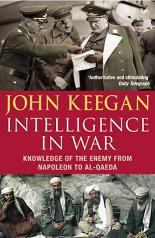The news that Ellis Sharp has given up blogging was the perfect end to 2007, another year in which the world in general seemed to get shittier, even if my personal circumstances have remained alright. What remains of 2007 to me is an overwhelming feeling of ennui, where literally each day brought a fresh outrage, but where unlike in 2006, when there was Israel’s war on Lebanon, there was no all overwhelming issue to which people mobilised. Not even global warming. There was more a feeling of despairing acceptance that the world was going to shit and you individually could do little about it, especially in the last months of the year. Blogging had been an escape valve, but has now conclusively been proven not to be able to change the world. No wonder Ellis, one of the best and intelligent bloggers I read this year has stopped. When you’ve said everything you can say, what’s the point in hanging on much longer?
Erm…
Well, for me personally there’s still the reason why I started Wis[s]e Words in the first place, because otherwise I’d still be screaming at the telly. I don’t need to win fame or influence people with this little thing, just as long as I can get rid of my thoughts here.
Meanwhile 2008 is four days old and has already managed to piss me off by offing George MacDonald Fraser, faithful chronicler of the adventures of Sir Harry Flashman, adventurer-gentlemen, cad and rogerer of other men’s women. I worried that this would happen back in September, when I reviewed what has now turned out to be his last Flashman novel. I had discovered him back in 1991 when John Ostrander namechecked Flashman in the last issue of Suicide Squad as the spiritual ancestor of Captain Boomerang. (If this means nothing to you, do check out back issues of this series; perhaps the most cynical (but excellent) mainstream superhero comic ever published.) Ten minutes into reading the first Flashman novel I could find (Flashman and the Mountain of Light iirc) I was hooked. George MacDonald Fraser was somewhat of a reactionary, but he was brutally honest in chronicling Flashie’s adventures in empire building. Such a pity that the still blank spots in Flashie’s past will now never be filled in.
So what can we expect from 2008? More of the same, I think. Yes, there are the presidential elections in the US to look forward to, but how much these will matter is something that can only be determined later. Like 2004 the outcome might break your heart if you still belief in the Democrats to save America from itself.
